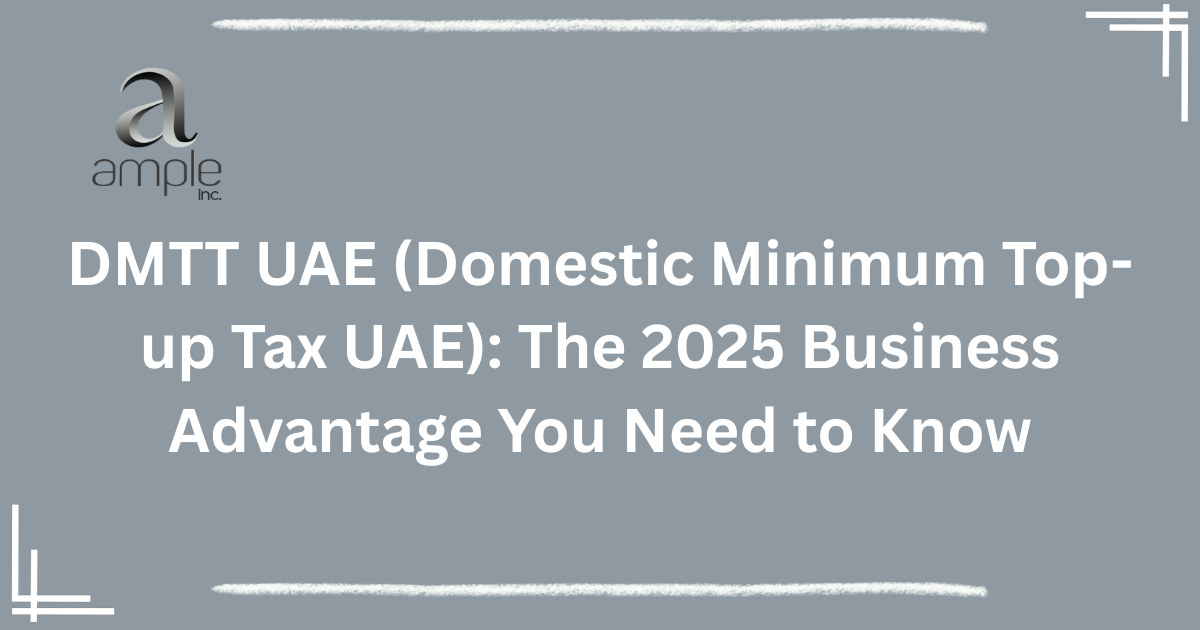Introduction: The Rising Importance of Corporate Tax in the UAE
As the United Arab Emirates transitions from an oil-dependent economy to a diversified business hub, understanding how to compute corporate tax in UAE has become a priority for businesses of all sizes. With the UAE introducing a federal corporate tax regime from June 1, 2023, all entities operating within the country must now comply with tax regulations in line with global standards.
In this 2025 guide, we’ll break down how to compute corporate tax in the UAE, step-by-step, and help you understand how to stay compliant while optimizing your tax obligations. Whether you’re a small business owner, accountant, or CFO of a multinational company, this SEO-optimized blog will help you rank high and gain clarity.
1. What is Corporate Tax in UAE?
Corporate tax is a direct tax levied on the net income or profit of corporations and other business entities. In the UAE, corporate tax was introduced to align with international tax standards and to prevent base erosion and profit shifting (BEPS).
The UAE’s Federal Corporate Tax Law (Federal Decree-Law No. 47 of 2022) lays the foundation of how businesses are taxed in the UAE, and it came into effect for financial years starting on or after June 1, 2023.
Keyword focus: corporate tax in UAE, compute corporate tax
2. Who is Subject to Corporate Tax in UAE?
Corporate tax in UAE applies to:
- UAE incorporated companies
- Foreign companies with permanent establishments in the UAE
- Free zone entities (subject to specific conditions)
- Individuals conducting business activities under a commercial license
Note: Personal income, employment income, investment returns (from shares, real estate, etc.) remain exempt from corporate tax.
3. Corporate Tax Rates in the UAE (2025)
The current UAE corporate tax rate (as of 2025):
- 0% on taxable income up to AED 375,000
- 9% on taxable income exceeding AED 375,000
- 15% for large multinational companies (with revenue above EUR 750 million), in line with the OECD Pillar Two rules
This progressive system ensures small businesses are minimally impacted while promoting economic growth.
Focus keyword usage: UAE corporate tax rate, compute corporate tax in UAE
4. Income Subject to Corporate Tax
Taxable income includes:
- Revenue from sales of goods and services
- Rental income
- Interest income
- Dividends from foreign entities (subject to participation exemption rules)
- Gains from asset sales
Net income is calculated as: Taxable Income = Total Revenue – Allowable Deductions – Exempt Income
5. Exemptions and Excluded Income
Understanding exemptions is key to accurately compute corporate tax in UAE.
Exemptions include:
- Dividends and capital gains from qualifying shareholdings
- Income from foreign permanent establishments
- Qualifying intra-group transactions
- Government entities and certain pension funds
Free Zone Entities: Eligible free zone entities may still enjoy 0% tax if they meet regulatory requirements and avoid earning income from the mainland UAE.
6. Step-by-Step: How to Compute Corporate Tax in UAE
Here’s a simplified way to compute your corporate tax:
Step 1: Calculate your total annual revenue.
Step 2: Subtract your allowable business expenses.
Step 3: Adjust for exempt income (like qualifying dividends).
Step 4: Resulting figure is your Taxable Income.
Step 5: Apply tax rate:
- First AED 375,000 = 0% tax
- Remaining income = 9% tax (or 15% for large MNCs)
Example:
- Revenue = AED 1,000,000
- Expenses = AED 400,000
- Exempt income = AED 50,000
Taxable Income = 1,000,000 – 400,000 – 50,000 = AED 550,000
Tax:
- First AED 375,000 = 0%
- AED 175,000 at 9% = AED 15,750
Total corporate tax payable = AED 15,750
Focus keywords used: compute corporate tax in UAE, how to compute corporate tax
7. Deductions and Allowable Expenses
Allowable deductions include:
- Employee salaries and benefits
- Rent and utilities
- Professional and consultancy fees
- Marketing and advertising
- Depreciation of assets
- Interest on business loans
Expenses must be:
- Wholly and exclusively incurred for business
- Supported by proper documentation
Disallowed Expenses:
- Personal expenses
- Penalties and fines
- Bribes or illegal payments
8. Filing Corporate Tax Returns
Deadline: Corporate tax returns must be filed within 9 months from the end of the financial year.
Steps:
- Register with the Federal Tax Authority (FTA)
- Maintain accurate accounting records
- File the return via FTA’s EmaraTax portal
- Pay tax dues within the due date
Penalties for non-compliance:
- Late filing: AED 500 to AED 20,000
- Incorrect reporting: AED 10,000 and more
9. Common Mistakes to Avoid
- Mixing personal and business expenses
- Not registering for corporate tax on time
- Failing to maintain proper records
- Misinterpreting exempt income
- Ignoring free zone compliance criteria
10. Tools & Resources to Help You Calculate Corporate Tax
To simplify the process, use:
- FTA EmaraTax platform
- Corporate tax calculators (from auditing firms like KPMG, PwC, or Deloitte)
- Accounting software (like Zoho Books, QuickBooks UAE edition)
Also, regularly visit:
11. Conclusion: Stay Ahead with Accurate Tax Computation
Computing corporate tax in the UAE is not just a legal obligation—it’s a strategic business move. By understanding the basics of corporate tax computation, staying updated with 2025 regulations, and using the right tools, your business can thrive in the UAE’s evolving financial environment.
Whether you’re a startup in Dubai or a multinational in Abu Dhabi, knowing how to compute corporate tax in UAE will protect your profits and keep your business tax-compliant.
Related Resources to Deepen Your Understanding
If you’re serious about staying compliant and strategic with your business tax planning in the UAE, we recommend exploring some of our other expert insights. Our Corporate Tax UAE REIT Update: An Essential & Promising Guide for 2025 covers key developments for real estate investors and REITs. If you’ve missed a filing deadline, don’t worry — our blog Missed Corporate Tax Deadline 2025? Don’t Panic – FTA Offers Grace Period with No Fines (Act Fast!) explains how to navigate late submissions without incurring penalties. And for those just starting out, our comprehensive walkthrough on How to Register for Corporate Tax in UAE – A Complete 2025 Guide is a must-read.



